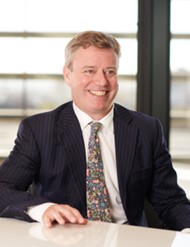12th Annual Employee Retention Conference
6 Case Studies and best practice for employers
Time: 09:30 - 13:30
Cost per attendee: £275 + VAT per attendee
(If you can't attend the live event, we can send a link post event to watch the recording. Cost: £195 +VAT - please contact registrations@bfi.co.uk)
Replacing an employee can take up to 28 weeks and cost over £25,000 in lost production
Retention is now the number one challenge faced by HR functions, and many organisations are struggling with stale, outdated approaches that do nothing but raise attrition rates. Employees are resigning in record numbers, and smart employers are looking at novel and innovative approaches to turn the tide and rejuvenate burnt out workforces.
71% of UK workers are looking for new jobs this year
With an impressive 12-year track record, this leading-edge conference will deliver a packed agenda of real-life case studies, expert advice and analysis.
Six real-life case studies:
- The role AI can play to stem resignations - KPMG
- Revolutionising your onboarding process - Mount Anvil
- Non-pay benefits to optimise retention - British Society of Rheumatology
- Succession strategies to optimise leadership teams - Frontier Electronics
- Role of brand and culture in retention - Tenco
- Keeping abreast of workforce wants & expectations - One Workforce
Delegate feedback
"I found the event engaging and good to learn what other companies are doing". - MASS
"It was an excellent informative day. Great to come together with colleagues all facing the same challenges. Feel re-energised to continue to strive to make our organisation a great place to work".
"Very informative, interactive, and interesting to hear the case studies". - DVSA
Platform: Zoom - An encrypted zoom platform with password access: Click here for further information and to test access
Get involved and sponsor this event
For over 28 years, our established virtual conferences and webinars have attracted large audiences of high-level HR decision-makers. If you would like to find out how to sponsor this event click here.
Which functions will benefit from attending
- HR, RECRUITMENT AND RESOURCING, TALENT, TRAINING, POLICY & STRATEGY, LEGAL, OPERATIONS, LINE MANAGEMENT, TALENT, EQUALITY, POLICY, ORGANISATIONAL DEVELOPMENT, ENGAGEMENT, PEOPLE DEVELOPMENT, LEARNING & DEVELOPMENT AND ALL STAFF WITH RESPONSIBILITIES WITHIN THIS AREA
Hear from








Schedule
Chair’s welcome and opening remarks
Leveraging artificial intelligence to stem resignations: What can it offer?



Bart Mol
Senior HR Transformation Consultant , KPMG Netherlands
As a millennial Bart grew up in the age of digitalization, he’s passionate about creating a strong user experience when interacting with HR. Providing employees with the optimal employee experience is an absolute must in order to retain and attract talent from the labor market. In the age of digitalization, HR is facing multiple challenges to stay ahead of the curve. While being faced with those challenges, HR is also struggling with organizational goals: cost reduction on staff functions, and a need for higher productivity with a smaller amount of HR professionals. The only solution to this problem is working smarter, not harder. Artificial Intelligence (AI) is the key to empowering HR professionals to maintain a healthy work/life balance, while also increasing their productivity. AI is also the key to providing employees with their desired experience while reducing the amount of HR professionals necessary to provide that experience. For the past 8 years, Bart has worked in the employment agency industry and HR Consultancy in various roles, ranging from HR Advisor, to HRBP, and now as Senior Consultant HR Transformation at KPMG. This has given him an interesting perspective by having experienced HR departments from a large variety of industries, and in different levels of maturity. His Master degree in Leadership and Management from the Amsterdam Business school provided him the opportunity to dive into what practices create future-proof organizations. It is his goal to introduce you to the practical side of AI. By now, every organization is convinced AI is the next big revolution, but how to utilize it in the daily operation remains the big question. He hopes to make your AI dreams a reality, let's innovate!
- What is AI? What is a Large Language Model?
- How can AI revolutionise retention? Separating hype from reality
- How teams interact with AI? Working smarter not harder
- Can AI predict and mitigate potential resignation patterns?
- Policy and compliance considerations
- Lessons learned from world-class best practice: who’s getting it right and what ideas can you adopt?
Case Study: Revolutionising your onboarding process to optimise engagement from the get-go



Stella Jackson
Head of Recruitment , Mount Anvil
Stella has over 10 years’ experience working in Recruitment, Talent Acquisition & Talent Management for companies such as IBM, Lendlease AND currently heads up the Recruitment and Talent function at Mount Anvil (a London based Real Estate Developer). Over the last 5 years, she has worked with the Executive and Leadership team at Mount Anvil setup an in-house recruitment function where she implemented various selection/assessment processes to ensure employees joining the business have the right technical ability to fulfil their roles but are also a great cultural fit. She’s predominantly worked for firms within the Real Estate, Construction and Facilities Maintenance industry and partners with Senior Leaders to ensure they’re making the best people decisions across the business. Stella is passionate about finding, retaining, and developing top talent whilst working closely with key stakeholders to ensure candidates have the best onboarding experience. Stella has a CIPD Level 7 in Resourcing & Talent Management AND Organisational Design & Development. Her key strengths are Stakeholder Management and resolving Organisational Design and Development issues. Stella’s skillset ranges from managing/overseeing recruitment processes, designing selection/ assessment processes, resource & workforce planning, interview coaching, analysing recruitment metrics and talent trends, improving candidate journey and onboarding whilst taking the lead on various change improvements projects. The most rewarding part of her role is seeing talent the business has hired progress in their career – it really brings joy to her heart, and she feels honoured to be part of their career journey!
- Effective pre-boarding strategy: quick wins
- Understanding and meeting Generation X expectations: cultural and brand changes
- Defining and setting goals for internal progression
- Non-financial benefits
- Flexible work patterns
- Building belonging and relationships
- Cultural changes and initiatives - Skills matching and training: valuing your new hires
Case study: Non-pay benefits to optimise staff retention in a competitive market



Jessica Badley
Director of People and Resources , British Society for Rheumatology
Jess Badley FCIPD is Director of People and Resources at the British Society for Rheumatology. Jess is particularly interested in the links between wellbeing, agile and flexible working, and innovation and how this can transform an organisation’s culture and approach towards work. Most recently, Jess was Head of HR & OD at Blood Cancer UK, where she led the charity to be ranked as the 9th best charity to work for in the UK by Best Companies in 2021, and the most inspiring not for profit workplace at the Inspiring Workplace EMEA Awards 2022. Blood Cancer UK also won the Wellbeing category of Inspiring Workplaces EMEA Awards, and Jess was awarded the Culture Pioneer award for Wellbeing at the 2021 Culture Pioneer Awards. Jess’s background and experience is across the charity and education sectors. She is also a trustee for Yes Futures, acts as mentor for the CIPD mentoring schemes in London, and volunteers for Young Women’s Trust on the Work It Out programme.
- Quantifying success: what are the key areas to measure?
- Making the changes that will matter: understanding you employees and matching their needs through open communication and feedback channels
- Where can you realistically make changes?
- Flexible working options: making sure the sums add up
- Cultural innovations to promote belonging and wellbeing at work
- The importance of autonomy: essential ways you can empower employees to maximise retention
Comfort break
Case study: Succession strategy to optimise your future leadership teams



Lucy Tobin
HR Director , Frontier Electronics
- Low attrition: the double edged sword
- Cultural and structural considerations for medium and long-term planning
- Mitigating the risk of group-think: how to ensure your future includes fresh perspectives
- Generational challenges and how they affect social capital
- Tackling the remote working issue: managing different expectations for fair outcomes
Case Study: The role of your organisational brand and culture in employee retention



David Ferrabee
Managing Director , Teneo
David is a Managing Director at Teneo focused on strategic communications and organisational change issues across geographies and sectors. He has been working in communications, change and transformation for over 30 years. David is usually engaged when an organisation wants to make business change happen through people. That means designing, developing and delivering organisational change management programmes, helping build and embed corporate cultures, developing capabilities in leaders and teams, as well the operationalisation of any other strategies. He started in politics and journalism in his native Canada, before moving into consulting. His first major consulting assignment was the merger of Astra and Zeneca in the USA and then the UK around the turn of the century. At that time he worked in a global HR consultancy. Since then he has lead a practice in a large international PR firm, and then spent ten years building and running the boutique organisational change management consultancy Able and How. Having grown up in the family of a foreign correspondent he has carried on those itinerant ways, working on four continents for clients like Rio Tinto, Shell, Santander, GE, BP, HSBC, Qtel, Shire, ITV and many, many more. David was born in Montreal, and raised in North America, Africa and Europe. He has been based in the UK since 2000. He has joint UK and Canadian citizenship, three large children, and speaks a fluent French and English.
- Reviewing your employee value proposition and evaluating its relevance in 2024: key questions to benchmark against best practice
- Thinking of your culture as a competitive advantage and managing and tracking it closely
- Identifying problem areas and the changes you need to implement to maximise your diversity and inclusion messages
Case Study: L&D strategies to optimise retention in your organisation
- Quantifying your current training initiatives: key questions to ask
- Leveraging AI and other tech: develop bespoke programmes to maximise retention
- Selecting the best microlearning programme: the good, bad and ugly
- Proactive skills building to future-proof your workforce: getting the best return on investment and avoiding expensive mistakes
- Coaching: snake oil or gold? Benchmarking and quantifying current trends
Comfort break
Case Study: Shifting expectations for 2024 and beyond: keeping abreast of workforce wants



Saumya Hebbar
Associate Director of People , Lincolnshire Health & Care System
Saumya is currently the Associate Director of People and leads a team of senior programme managers (People Hub) who deliver on workforce transformation programmes for Lincolnshire Health & Care. System wide wellbeing programmes, an innovative approach to equality & diversity, reduction in bank and agency costs, sustained improvement in retention – these are just few of the areas her team leads on – https://www.oneworkforcelincs.co.uk/ Before this she was the Head of Organisational Development at United Lincolnshire Hospitals Trust where she worked for three years. She has over 20 years of experience in Global HR/OD transformation roles both in Private IT / Consulting companies as well as in the NHS. Saumya’s particular interest and passion is ‘Enhancing the Employee loyalty factor’ and how various ethnicities and cultures have an impact on Organisation culture and its loyalty factor. Working on improving this stickiness and thereby retention is key, especially given the pandemic and its impact on our workforce. She is a motivational speaker and has spoken on many topics from breaking the glass ceiling for BAME women in NHS management, to creating a diverse & inclusive culture, to the financial benefits of a focus on retention. Saumya has a degree in Psychology and Sociology and also a Masters in Organisation Behaviour. She has a Chartered Fellow of the CIPD and is an accredited facilitator for a number of psychometric tools.
- Fresh ways to collect and analyse employee feedback to design and implement compelling retention programmes
- Countering burnout, long-term absence and low morale: what are the smart employers doing?
- Change fatigue: powerful tactics to renew energy and performance
- Developing and implementing a holistic wellbeing programme for 2024 and beyond: getting to the heart of what will retain your talent
- The art of the exit interview: latest trends and thinking
EDI Initiatives: Building an intergenerational workforce to minimise attrition and friction



Funda Kalemci
Global Leader - Diversity, Equity, Inclusion & Well-being , NielsenIQ
Funda is the Global Leader of Diversity, Equity, Inclusion & Corporate Citizenship at NielsenIQ. In this role, she is responsible for managing NielsenIQ's global DEI strategy and initiatives as well as the company’s corporate citizenship strategy and programs. Her responsibilities include establishing and leading the company’s plans to meet gender, racial/ethnic representation aspirational targets as well as drive the agenda for diverse abilities, multinational and LGBT+ programs; Employee Resource Groups and Inclusion Impact Teams globally; creating NielsenIQ’s corporate citizenship strategy and roadmap; volunteering program; and ESG reporting. With 9 Employee Resource Groups, 58 active Inclusion Impact Teams in over 84 countries, 500 Program Leaders and 3,000 ERG members; the company’s mission is to shape an inclusive culture and create an engaging employee experience by embedding diversity, equity & inclusion in all the processes within the company. During her 11-year tenure at Nielsen/NielsenIQ, Funda served in various teams across the organization and successfully launched different process improvement solutions within the operations teams. As a stretch assignment, she also led the Women in Nielsen (WIN) Employee Resource Group in Turkey, served as an Inclusion Ambassador for Europe, and launched 2 other ERGs (PRIDE & N-GEN) in Turkey even before joining the DEI team. She has also led Nielsen Cares and Nielsen Green teams locally and globally, creating opportunities for all associates to participate in different programs and volunteering opportunities aimed at making an uncommon impact in the communities where we live and work and improving diversity & inclusion in the organization and community. Before joining NielsenIQ, Funda has worked in a wide range of industries from retail to education to special projects. Funda currently serves as an Advisory Board Member in African Diversity & Inclusion Center and is an active member of LEAD Network. Funda has a bachelor’s degree in English Language and Literature with a minor in American Culture. She holds a professional certificate in Teaching English to Speakers of Other Languages. She is married with two sons.
- Career and workplace expectations of Millennials, Boomers, Gen Y and Gen Z: Five strategies to implement tomorrow that will build on similarities to strengthen your teams
- The challenges of a fragmented workplace: how do you recognise and overcome a lack of connection to peers and purpose?
- Holistic wellbeing: Mental, physical, financial, emotional and social wellbeing initiatives that every company should implement
- Future-proofing: facilitating age-diverse knowledge and skills transfer
How workplace dehumanisation threatens retention and what strategic steps you can take to minimise the risks



Mark Hashimi MSc MBACP UKCP
Director , Strategic Wellbeing
Mark, having previously held a number of senior management positions over the last ten years, has significant experience when dealing with mental health and work related issues, as head of workplace wellbeing at Mind in Hammersmith & Fulham, senior revenue manager at EDF Energy, as a psychotherapist, trainer, public speaker, mental health first aid instructor and from his own personal experiences. Mark works closely with Bloomberg, WPP Group, Ogilvy, UKTV, BBC Worldwide, Cabinet Office, AIG Insurance, Allianz, Hiscox, Met Police, NHS, Sage Publishing to name a few. Mark facilitates mental health sessions with a strong focus on proactive intervention and long-term sustainability, challenging stigma and effective communication. Mark takes an “end-to-end” approach to wellbeing strategy implementation when working with clients; he is experienced in reviewing, enhancing and writing mental health policy and embedding welling strategy in line with best practice. Alongside corporate training and consultancy, Mark works as a psychotherapist and counsellor trained in transactional analysis and EMDR. Mark co-designed and delivered the “Trauma and Bereavement” training for those impacted by the Grenfell tragedy and Mind’s core mental health and emotional intelligence workshops delivered nationally.
- The four human values that support engagement and retention: what’s the link you’re missing in your organisation?
- Psychological motivators and needs for the younger generations
- Reviewing and optimising communication to reinstall a sense of belonging in 2024
- Avoiding silent quitting: key signs and reinstalling hopefulness to avoid unnecessary talent loss
- Rebuilding a stronger work culture in 2024 through safety and trust

